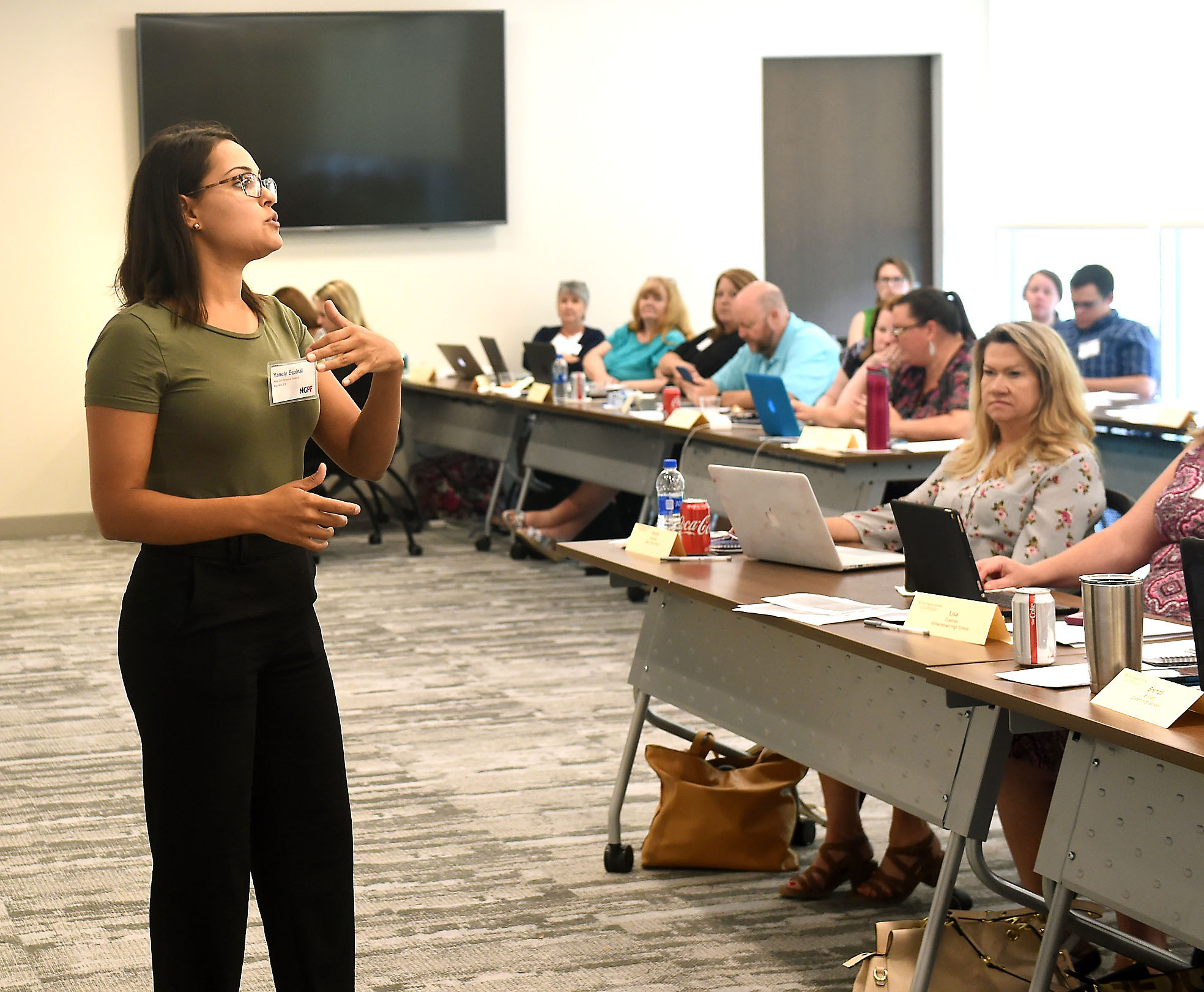Primary and secondary school teachers from all of the state’s 55 counties are in Morgantown this week to participate in West Virginia University’s 17th annual Finance University, a five-day professional development course designed to help school students learn financial realities.
Naomi Boyd, chair of WVU’s Department of Finance and director of Financial Literacy and Education, said teachers are always asking how to improve students’ understanding of finances.
“I got involved from the beginning because I noticed there was a need for financial literacy,” Boyd said.
The 50-plus teachers who are meeting at the Hampton Inn and Suites at University Town Centre are being taught a variety of topics geared toward training their students to think about money management.
Topics covered during the 45-hour session include how to budget with roommates, investing, how to be a healthy consumer skeptic, insurance and risk management and estate planning. Next Gen Personal Finance underwrote this year’s Finance University so participants did not have to pay.
“The need for financial literacy is critical in today’s world, especially with the topic of money management driving conversations with families dually preparing for the financial realities of retirement and taking on college debt,” Boyd said.
“This is the largest group we have had in years,” she said.
Indeed. Consider baby boomers nearing retirement are coming up short on retirement savings, while married couples will need an average savings infusion of $38,608, according to the Employee Benefit Research Institute. And if there are health issues, then an additional $142,598 is needed. Generation X couples, meanwhile, are expected to need an extra $42,758 in savings.
In all, EBRI estimates Americans are $4.13 trillion short in their retirement savings.
Finance University is set up as a combination of lectures and participation drills. For example, at a Monday afternoon session, Yanely Espinel, Next Gen’s director of educational outreach, talked about how many students who hold down part-time jobs are now being paid with payroll cards, which work like a credit card but are not linked to a bank account.
“If my employer offers a payroll card, then do I have to accept?” she asked participants.
The answer is no. Still, Espinel explained these cards are growing in popularity because it is a cheaper way to pay workers.
“But 44% of payroll card holders incur fees,” she said.
Besides seminars and participation exercises, participants are given homework assignments to complete. Assignments include requesting a free copy of your credit report and discussing ways to improve the credit score, or identifying 10 ways to improve your financial condition such as contributing $10 a pay period toward savings, or brown bagging your lunch twice a week.
Finance University wraps up Thursday with tips on how to teach personal finance and a collaboration exercise led by Boyd.
TWITTER @DominionPostWV




